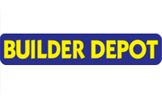News & Events / ...
How to Manage Waste as You Scale Your Garden Centre
Whether you operate a local garden centre or hardware store, or you franchise with one of the biggest names in retail, there is a good chance your business model changed dramatically recently.
Increased demand and changes in retail generally mean more and more UK garden centres and hardware stores now operate both retail stores and e-commerce options. The result: growing garden centres and DIY businesses, increased stock orders and order frequency, and more waste.
Finding ways to manage your waste and recycling as you scale your business is critically important. Failing to do so could see growing costs and inefficiencies cut into your increased sales profits.
Recycling offers more than baled cardboard: it’s part of your overall small business & retail management strategy. Here’s how you can grow your stock, sales, and profits sustainably with the help of a waste baler.
Are You Wasting Your Retail Profits on Refuse?
Do you know how much waste management costs your business? Or how it impacts other areas of your business? There has never been a better time to identify these costs and learn to control them.
The cost of business waste was already growing in 2019: businesses spent £91.35 per tonne of waste that year and grew to £94.15 from April 1, 2020. In total, the average small business spent £384 per year just on the out-of-pocket costs of waste disposal in 2019.
What many don’t realise is that the gate fees and taxes aren’t the total cost. As your waste grows, you also spend more money on waste labour and energy. In reality, the total cost of waste can be enormous, and if left unchecked, the cost will grow alongside your business.
You may find it helpful to break down these line items to find inefficiencies.
For example, you might find stockroom colleagues spend an average of six hours a week breaking down boxes.
If two colleagues making minimum wage tackle this job, then you spend £106.92 per week or £5,559.84 per year on the cost of simply compacting recycling. That doesn’t include the collection or gate cost itself!
Other common inefficiencies that pop up in recycling management include:
- Waste collection schedules that are too frequent or too infrequent
- Lost warehouse floor space due to overflows of packaging
- Increased cost of shipping due to bulky packaging
- High gate costs or taxes with increased vehicle movements
The bottom line: waste management has a cost, but it can also be streamlined.
How to Streamline Your Waste Cost with a Baler
Your waste could cost you thousands of pounds per year, and you might not know it. Once you do, however, you can begin to streamline those costs.
Streamlining waste management in retail stores is an individualised process. You need to know:
- What types of waste you have
- What volume of waste you generate
- Where you can send that waste
- What space is available in the storeroom
Once you answer those questions, you can then look at your process.
For example, a garden centre manager might have the stockroom colleagues throw everything into one bin. The bin gets collected, sent for incineration, and the process is complete. However, it may cost more because landfill wastes are more expensive than recycling, and you may overfill the bins and need more collection dates.
In this case, the garden centre manager could:
- Separate waste into multiple bins, keeping recycling waste separate and minimising landfill costs.
- Use a cardboard baler and plastic baler to save time on breaking down cartons and boxes and send cardboard bales for recycling.
- Utilise the combination of recycling balers and multiple bins to reduce the number of pickups needed, save on floor space, and reduce labour costs.
- Take advantage of flexible baler rental agreements and sell baled cardboard to generate a revenue stream and off-set waste management costs.
Think carefully about your operations and how you would like to handle waste management to maximise efficiency and minimise costs. Keep in mind that your budget could be further improved by renting or leasing a machine, rather than buying equipment outright. Not sure what baler is right for your business? Contact our team of experts and we’d be happy to help you find the best product that suits your business needs.
Could the right waste baler pay for itself?
Selecting the right baler for your business can
reduce waste collection fees and actually earn
you money, by turning that waste into a saleable
commodity, baled and ready for collection.
Why a baler is key to efficient waste removal
Using a baler significantly reduces the labour involved
in flattening boxes manually and improves waste
management by compressing recyclable waste,
enhancing the efficiency of your business.
Our Customers
As the UK’s leading waste baler specialist, LSM supplies shops, garden centres, hotels,
hardware stores, farm shops etc. with waste solutions for various recyclable materials
including cardboard, paper and plastics etc.









